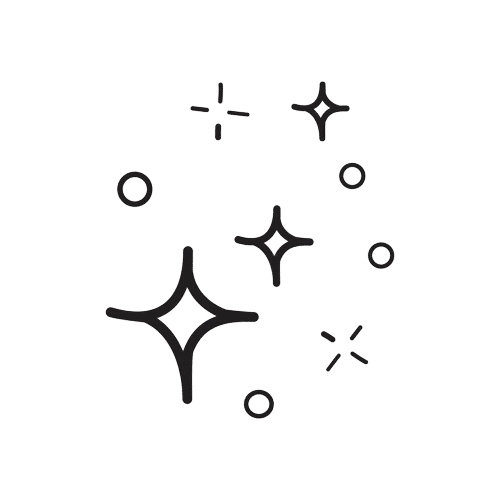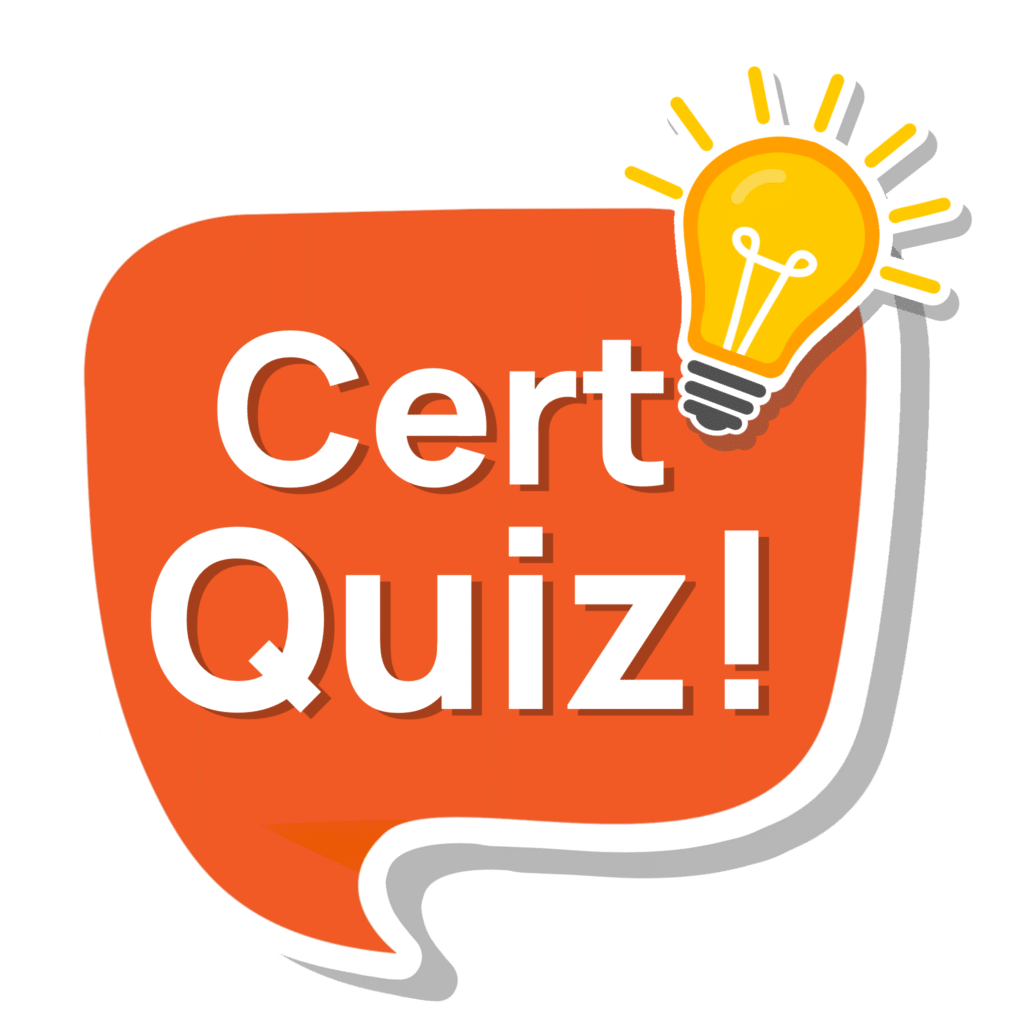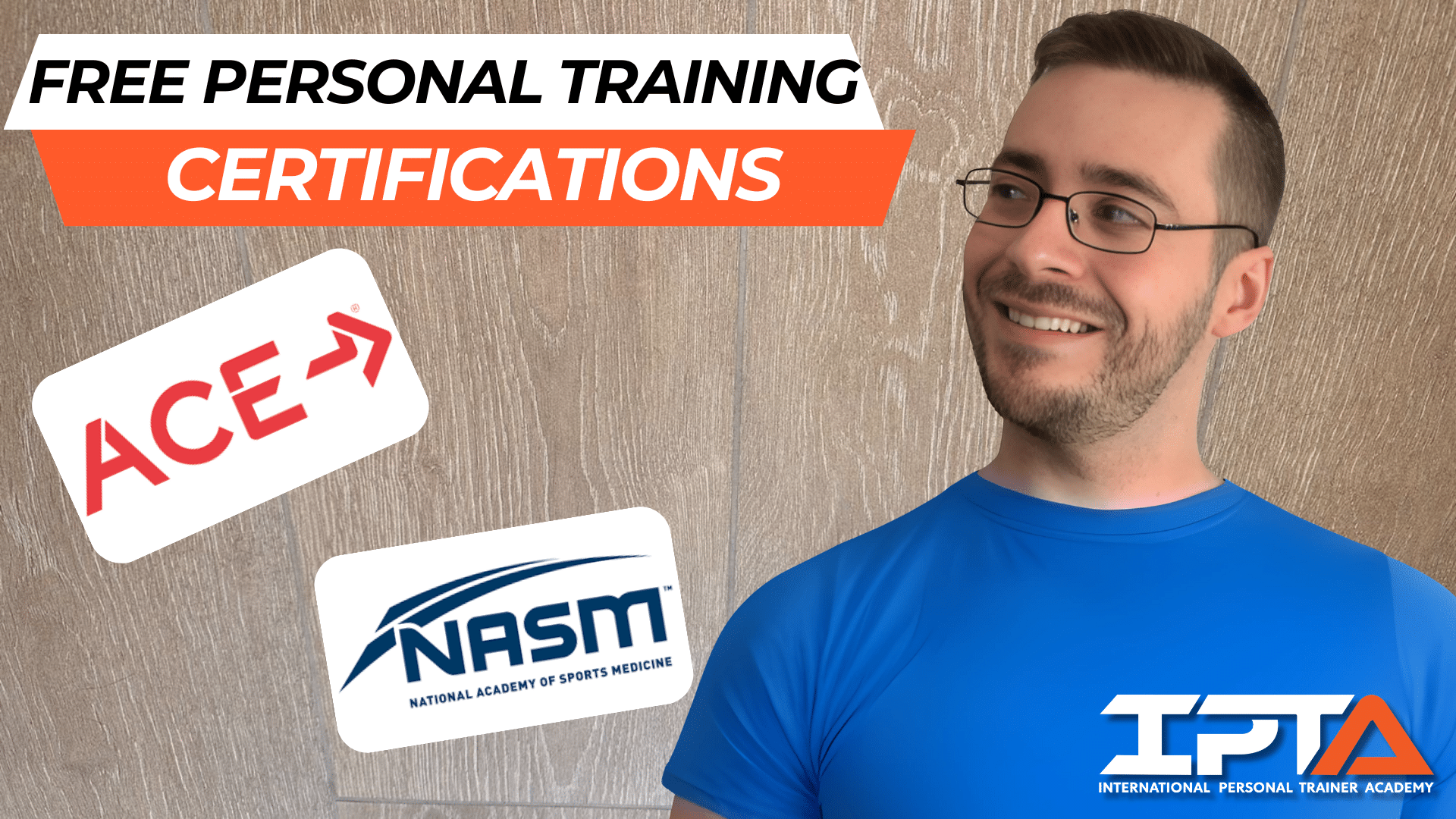
If the question, “What personal training certification should I get” sounds familiar, you are probably contemplating, or researching – or both.
Today, let’s talk about the NSCA-CPT.
This NSCA personal trainer certification reviews the NSCA certified personal trainer content, NSCA study materials, continuing education units, and NSCA-CPT exam based on the following:
- Content covered in the NSCA-CPT personal training book
- Quality of NSCA exam prep materials
- Quality of NSCA exam prep materials
- NSCA-CPT exam cost
- NSCA-CPT exam difficulty
By the time you finish reading, you will be ready to decide if the NSCA CPT is the right certification for you.
We highly recommend that you take our helpful quiz to find the best personal trainer certification for you.
Let’s get into it!

NSCA CPT General Information
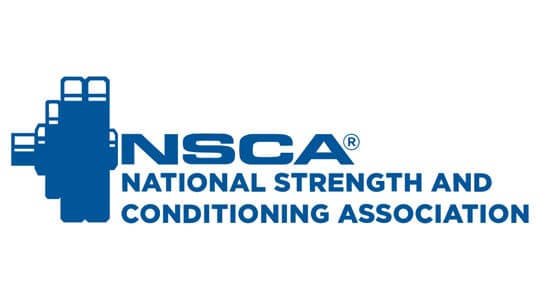
- Exam cost: $435
- Study material cost: $511
- Prerequisites: CPR/AED, High School Diploma
- Exam passing score: 70%
- Exam pass rate: 72%
- Average completion time: 3-6 months
- Industry-leading scene and practical application
- A densely-packed over a 600-page textbook that blows others out of the water
- Great lead-in for future advanced certifications
- Respect of being one of the top certifying organizations in the industry
- Lack of online video and audio from the organization
- Fewer practice questions are offered than desired
- Exam not included in study packages

- Complete curriculum study preparation
- Audio guide, flashcards, and mnemonics
- 800+ practice questions
- Highest exam pass rate
- Exam pass refund guarantee
- Cheaper pricing than other organizations

- Curriculum study preparation
- Video and written curriculum included
- Textbook purchased separately
- 200+ practice questions
- No exam pass refund guarantee
- $300+ for textbook and prep course (exam not included)
Exclusive TA Offers |
||
Most Popular Cert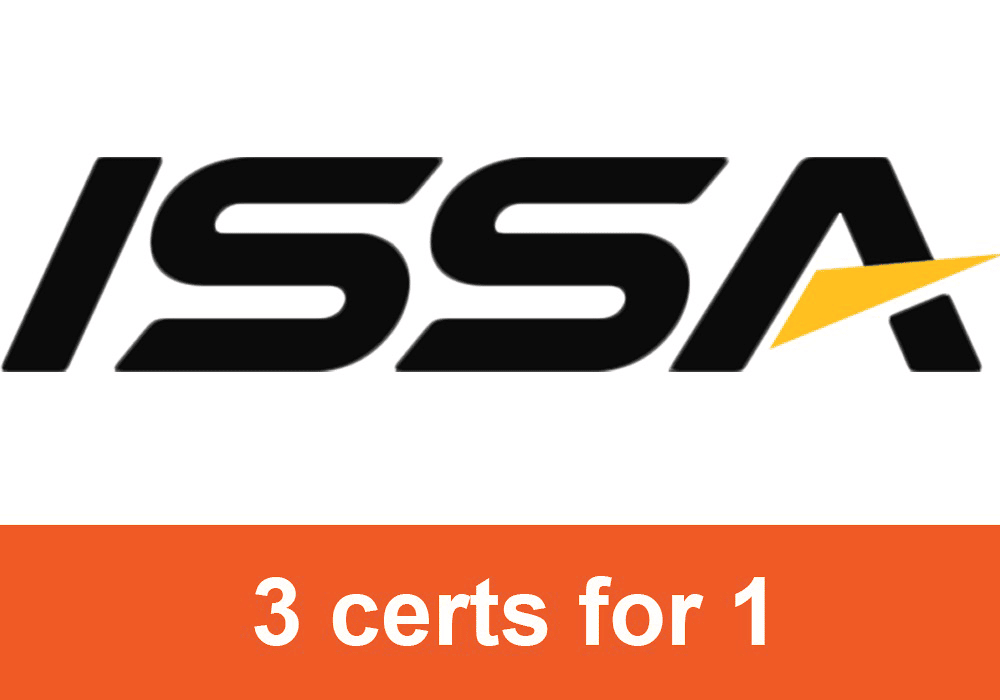
| Great Option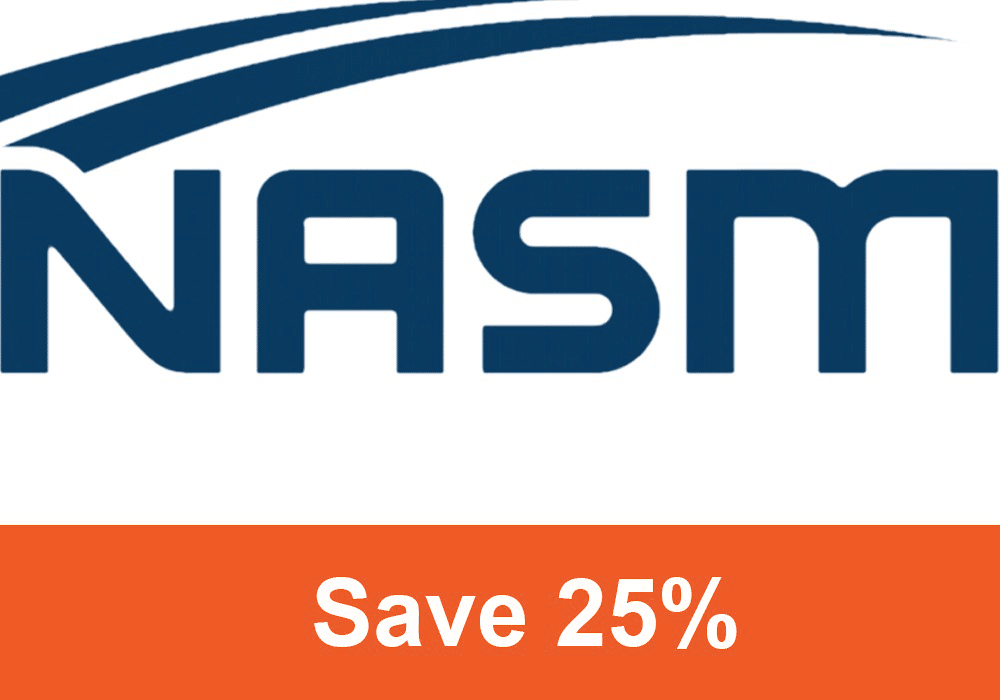
| Best Cert for you? 
|
Good Option
| Good Option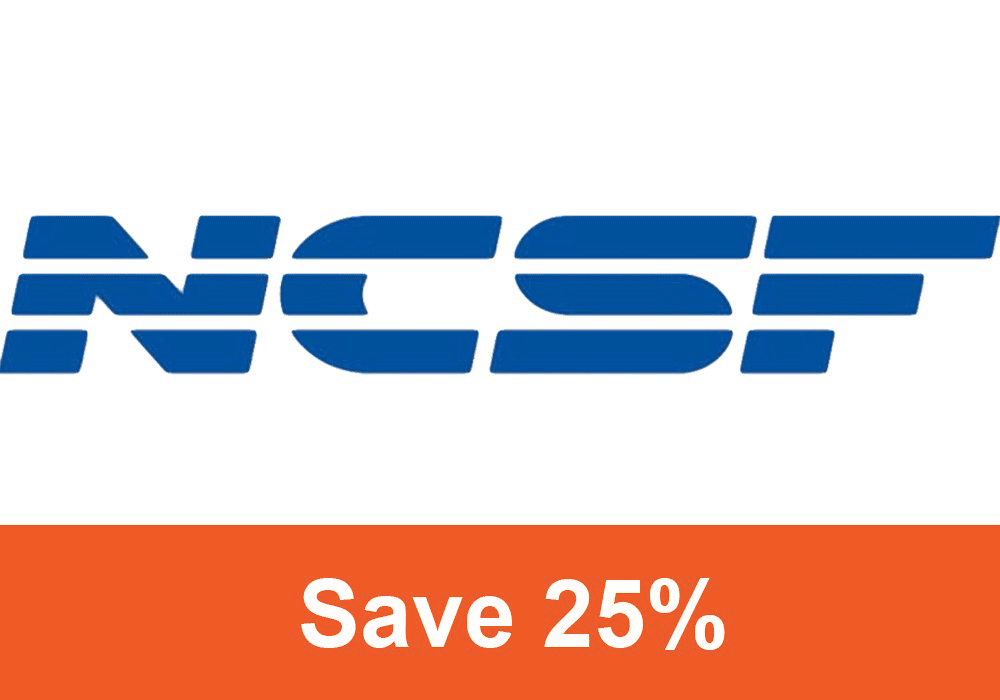
| Good Option
|
NSCA Personal Trainer Certification Curriculum
This NSCA certification review covers the NSCA-CPT itself and curriculum.
The National Strength & Conditioning Association Certified Personal Trainer Program (NSCA-CPT), a non-profit organization founded in 1978, is an NCCA accredited fitness training certification program.
Its headquarters is located in Colorado Springs, Colorado.
As of 1996, the NSCA had become the first certified personal trainer certification program to be accredited by the National Commission for Certifying Agencies (NCCA).
This certified personal trainer program exceeds the NCCA standards, which makes it one of the best personal trainer certifications.
It is also one of the most respected fitness certification programs, which means the average personal trainer income is higher with this cert.
There are over 60,000 NSCA members and certified professionals in the fitness and sports medicine industry.
Its mission is the global enhancement of strength and conditioning, and the empowerment of dedicated sports medicine professionals to provide top-notch scientific knowledge.
If you do the NSCA-CPT test prep and the NSCA-CPT exam questions, then your CPT study material will come from the NSCA textbook.
Additional materials are designed to help you learn the material in the textbook to pass your NSCA-certified personal trainer test.
No exercise science background or college degree?
No problem!
There are no secondary educational prerequisites, but you need to be at least 18 years of age, have a high school diploma, and hold a current, up-to-date, CPR/AED certification.
Also, for anyone wondering do you have to be certified to be a personal trainer, in most scenarios, yes, you do.
Here’s What You’ll Learn
Want to learn more about the NSCA-CPT curriculum?
Here are some of the ins and outs of the NSCA cert.
The first section of the NSCA-CPT curriculum covers basic anatomy and exercise science.
You learn the structure and function of the muscular, nervous, and skeletal systems.
This includes an understanding of muscle fiber types and how each one applies to exercise and sports performance.
The curriculum briefly reviews the structure and function of the nervous system, and how it relates to and applies to the control of the skeletal muscle.
Why is this important?
It helps to know the structures and functions of each system when designing exercise programs.
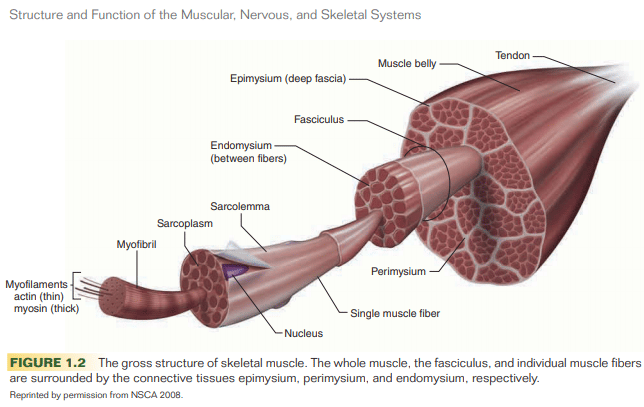
Also, this chapter covers the importance of exercise in maintaining bone health.
You can explain some other wellness benefits of strength training to your clients, too!
Second, you will review the anatomical and physiological characteristics of the cardiovascular system. Despite the depth of the information, the content is well-described and easy to understand.
You will also cover the electrical conduction system of the heart and basic electrocardiogram. When you are becoming a personal trainer, it is beneficial to have a basic understanding of this.

Additional knowledge includes:
- Circulation and its control mechanisms in the body
- Process of gas exchange between the lungs and blood
- Inhalation and exhalations
- Overall mechanisms of the respiratory system
Third, the bioenergetics section covers the different energy systems used throughout the human body.
Why does this matter?
While this information gets a bit technical, it helps design metabolically specific programs for your client’s goals.
You can scientifically explain to your clients why you chose each exercise, interval, resistance level, and rest period.
The next topic in the exercise science section covers biomechanics.
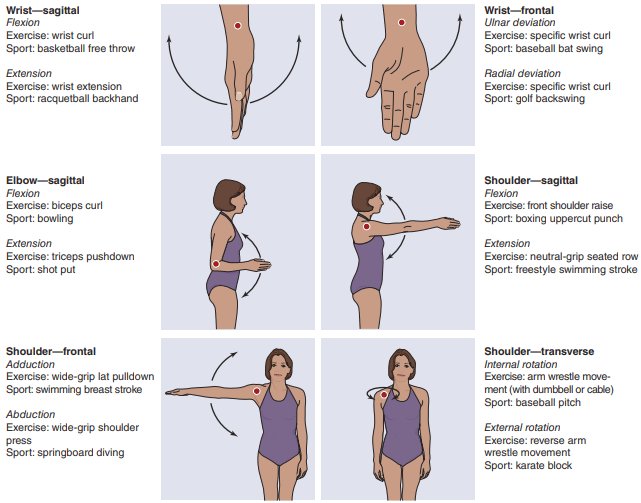
In sports medicine, this refers to the proper human movements and the corresponding anatomical and mechanical terminology.
You will learn common human movement problems and apply mechanical concepts to make corrections when appropriate for injury prevention.
You will learn the various factors which contribute to human strength and power, and also movement tasks, and the muscle actions involved in them.
Then, the resistance training adaptations section does a great job covering both acute and chronic adaptations to resistance exercise.

The NSCA-CPT curriculum thoroughly covers a vast amount of topics muscle fiber adaptations, strength adaptations, and even heart rate adaptations.
These factors impact the rate of adaptations to resistance training.
Now, you will learn about overtraining.
Overtraining can be dangerous and lead to injury.
Therefore, you will learn ways to design strength training programs for client injury prevention.
Note that overtraining is covered in similar depth in the other industry-leading fitness certifications, such as the NASM CPT certificate, as well as ISSA or ACE.
But what about detraining?
Detraining occurs from any significant reduction in stress from a reduction in training volume.
Your client’s body may regress to its pre-trained state. But the fitter the individual, the less time it will take to get back all his or her lost gains.
Given that clients worry about regression when missing workouts, educating them on detraining is a great way to manage their fears while emphasizing the importance of consistent exercise.
The aerobic training section covers both acute and chronic physiological responses to aerobic exercise, which are helpful for trainers to be aware of and talk about with their clients.
Acute physiological responses include things like cardiac output, stroke volume, and blood pressure.
Chronic physiological responses include things like performance, muscle fibers, and metabolic energy stores.
Also, various factors influence adaptations to aerobic endurance training, such as Vo2 max, smoking, age, and sex.
Discussing the effects of these factors on aerobic endurance is important for properly educating your clients on aerobic training.
The nutrition section covers the topic in similar depth to the comparable top fitness certifications in the industry.
This includes:
- General nutrition factors for health and performance
- Breakdown of macro and micronutrients
- Recommended intakes for different nutrients
- Nutrition for hypertrophy and weight loss
Personal trainers must stay within their scope of practice and should know when to refer clients to qualified professionals for more specific nutrition advice.
The nutrition covered follows the standard guidelines from government health organizations.
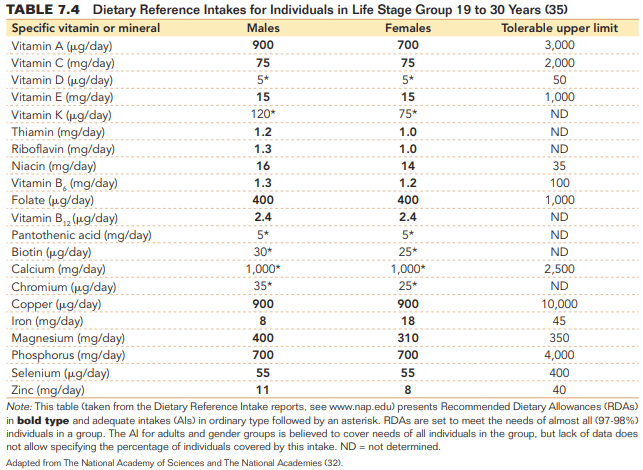
Although this is the mainstream approach, some of your clients will undoubtedly ask about ketogenic diets or other alternative nutrition approaches.
It would be useful to include a section on this type of diet, including relevant research, so you can better discuss answers to this topic when your clients bring it up.
You will definitely encounter clients who follow opposite approaches to mainstream advice or have curiosities about the different approaches.
So what should you do?
Remain neutral and be able to explain the pros and cons, as well as relevant research, regarding approaches such as keto, carnivore, and vegetarian or vegan approaches as well.
Eventually, if you are particularly interested in this topic, it would be good to get a nutrition coach certification. At Trainer Academy, we have info on the top info on nutrition coach jobs, nutrition coach salary, as well reviews of the biggest certs, like our Precision Nutrition review and our NASM nutrition certification review.
Now that was food for thought!
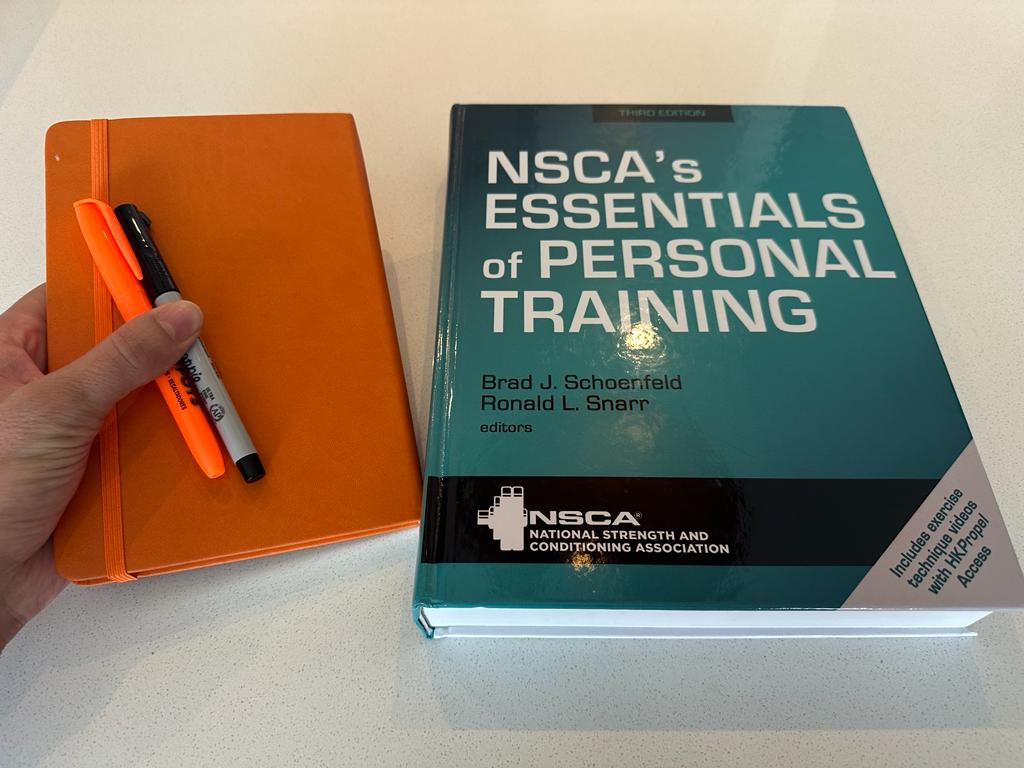
Like similar industry-leading fitness certifications, exercise psychology for the personal trainer is heavily emphasized.
The curriculum will teach you the proven psychological benefits of exercise, such as confidence and better overall mood.
In our experience, a client’s long-term success with reaching their fitness goals depends heavily on the psychological aspects of exercise adherence in addition to the physical exercise itself.
This chapter does an excellent job of covering these key skills.
Although NSCA covers motivation very well, it does not cover discipline at all.
In other words, motivation is a great tool for personal trainers to use to help clients the first time, but the discipline to continue is even more so important for client long-term success!
A missed opportunity would definitely be the inclusion of ways that trainers can help clients develop the discipline to adhere to their desired, healthier lifestyles and exercise programs. The ACE CPT probably has the best information in terms of exercise psychology between certs.
The Initial Consultation
The best personal training programs always cover client consultation.
Why is this so important?
Initial client consultations allow you to safely and effectively assess compatibility, and to work with clients to develop goals.
Before clients begin an exercise program, they should obtain a pre-participation health appraisal screening in case there are positive coronary risk factors associated with cardiovascular disease (CVD).
The curriculum heavily emphasizes assessing the health status of your clients and knowing when to refer them to a qualified healthcare professional, which is part of the duties of a personal trainer.
A click on this link will give you access to the current price of NSCA-CPT.

You will cover the purpose of performing physical assessments on clients, as well as ways to be sure that the instruments used when conducting physical assessments are valid and reliable.
NSCA does a great job covering the importance of the validity and reliability of tests.
Since not every test is for every client, it is imperative to learn and understand each test to determine the best, most appropriate one for your client.
For instance, clients struggling with obesity may want to avoid certain assessments at first, while other clients refrain from certain fitness assessments if they do not relate to their goals.
Choosing the proper fitness assessments is a key skill excellently fleshed out in this section.
Next, NSCA covers the protocols for selected fitness tests, and how to properly conduct and read them.
Conveniently included in the population-wide normative data from test results.
Your clients can gain a perspective on where they stand relative to the overall population, and where they are to their goals.
The technique is Key!
First, you will cover the benefits of participating in flexibility training programs, such as improved circulation and less stress.
There are also numerous factors, such as age, joint structure, and muscle mass that affect flexibility.
You can educate your clients on the importance of flexibility and the factors that affect the joint range of motion.
The NSCA covers the importance of a warm-up before exercising very well.
This is standard in most fitness certifications.
Also, you will learn to devise a flexibility training program emphasizing a combination of both dynamic and static stretching.
Dynamic stretching is best before exercise, whereas static stretching is advised at the end as a cooldown.
Overall the flexibility chapter leaves you adequately prepared to design great programs for your clients.
The next section thoroughly covers resistance training and emphasizes maintaining proper form and technique during resistance training.
This is crucial for injury prevention.
One key aspect the NSCA highlights is spotting resistance training. This is an important skill for trainers, particularly if you include heavy weight training in your fitness programs.
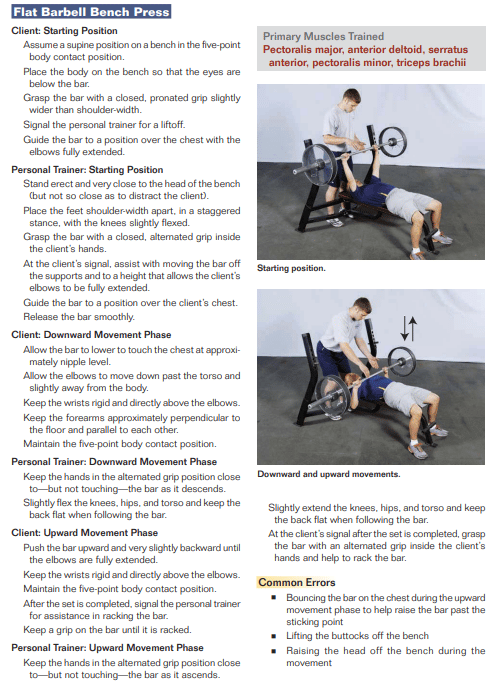
For example, a trainer spotting a client performing a barbell bench press may assist with moving the bar off the racks at the client’s signal.
Spotting demonstrates taking safety precautions when exercising, especially with a heavyweight.
Many people fail to spot correctly, so highlighting the proper technique for this key skill is essential.
Finally, there is an excellent exercise library with a whole bunch of exercises and modifications, allowing you to progress or regress each exercise as needed for your clients.
The cardiovascular training section gives you plenty of tools to assess clients’ cardiovascular fitness levels. This allows safe participation in appropriate cardiovascular training programs.
You will also go over the typical cardiovascular training machines, such as treadmills, ellipticals, and bikes, to determine which fits your client’s needs and goals.
Also, many different cardiovascular exercises do not require machines, such as walking, running, swimming, and group exercise classes.
These exercises are great, especially for clients who do not prefer traditional aerobic equipment.
Learn to Design Custom Exercise Programs
You will cover the general training principles, initial client consultation, and evaluation. NSCA also covers the frequency and volume of training in thorough detail in this section as well.
Now you can decide which exercises are the most ideal for your client, based on their goals and background.
The order of the exercises impacts results. For instance, it may make sense to do one exercise before another, perform supersets or compound sets, and otherwise customize the programming variables for your client.
This section does an excellent job of providing a practical framework for implementing proper program design.
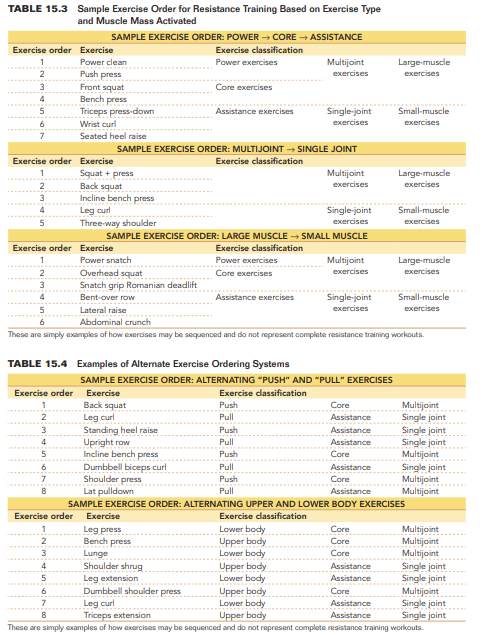
By the time you finish this section, you will have a comprehensive understanding of the following variables:
- Exercise selection
- Exercise order
- Amount of resistance
- Sets, repetitions, and rest periods
- Weekly training volume
- Micro, meso, and macrocycle programming
Next, you will learn the components and specificity of aerobic endurance training, how to design aerobic training programs, and the types of aerobic training exercises.
The NSCA coverage of aerobics training rivals coverage from other programs, such as ACE, NASM and the ACSM certification.
In the Plyometric and Speed Training section, proper plyometric mechanics are enforced, along with physiology.
You will learn when to use plyometrics and how to design plyometric training programs.
Many different plyometric exercises are explored, as well as speed training exercises, and how to design a speed training program.
This is excellent if you have any intention of training athletes, or pursuing the Certified Strength and Conditioning (CSCS) certification!
Should you get the NSCA CSCS certification?
If you want to help athletes improve their sports performance, and design predominantly sport-specific training programs, then the CSCS is best for you.
However, if you want to work amongst the general population, then the CPT is sufficient!
Evidently, you would be required to take the NSCA CSCS exam. Make sure to pick our CSCS study book and CSCS practice exam to ace that test!
You also learn safety considerations for both plyometric training and speed training, proper form, various techniques, and ways to combine plyometrics and speed training with other types of exercise with NSCA!
This is also helpful for clients with sport-specific goals and tactical strength training.
If you want to specialize in tactical strength, NSCA even has a Tactical Strength and Conditioning Facilitator (TSAC-F) certificate!
Exclusive TA Offers |
||
Most Popular Cert
| Great Option
| Best Cert for you? 
|
Good Option
| Good Option
| Good Option
|
What Are Unique Needs?
Not every client you work with within your career will be athletic, strong, or coordinated.
Many clients are unable to perform certain exercises.
In these chapters, you will learn ways to work with clients with unique needs.
You can even learn how to become a certified special population specialist.
Also, it is key for trainers to understand the considerations for preadolescence, older, and pregnant populations before devising an exercise program.
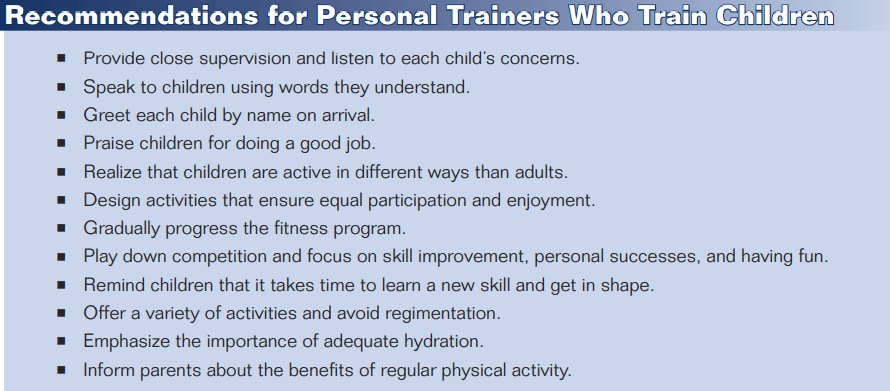
Furthermore, NSCA provides a Position Statement scientific article to read for more information on resistance training for older adults.
You can explain to older clients why you recommend strength training with weights.
For pregnant women clients, NSCA emphasizes the importance for personal trainers to have a full understanding and awareness of the physiological changes that occur in women during pregnancy.
Most CPT certs provide appropriate exercise modifications for their prenatal clients that match each trimester.
Also, negative symptoms related to pregnancy, such as preeclampsia, and depressive symptoms, may impede a woman’s functionality and participation in fitness.
The NSCA does a great job of explaining how to mitigate these risks when training pregnant women.
Additionally, NSCA covers clients with nutritional and metabolic concerns.
You will understand clients who are overweight and obese, have eating disorders, hyperlipidemia, Metabolic Syndrome such as thyroid disorders, and have diabetes type I or II.
NSCA covers clients with orthopedic, injury, and rehabilitation concerns in great detail, but fails to address some of the more complicated issues which may impact exercise and/or sports performance.
NSCA describes each common issue with sufficient detail, including the following:
- Low back pain
- Shoulder pain/strain
- Ankle pain
- Knee pain
- Hip pain
- Arthritis
Unlike similar industry-leading fitness certifications, the NSCA-CPT covers content about clients with spinal cord injury, multiple sclerosis, epilepsy, and cerebral palsy.
You may encounter clients with these disorders throughout your career.
NSCA does not cover other, more complex injuries one may come across as a personal trainer, such as spina bifida, but covers spondylosis and herniated discs fairly well.
The section on arthritis thoroughly differentiates between osteoarthritis and rheumatoid arthritis. This difference is very important to consider when trainers design exercise programs.
The section which covers resistance training specifically for athletes includes factors in program design, periodization, and also, linear and nonlinear models of periodized training.
As clients reach higher levels of performance, the programming must become increasingly fine-tuned.
While full depth on this topic is beyond the scope of a general fitness certification, it is great that the NSCA makes you aware of these advanced considerations and it is certainly more detailed than ACE or NASM even. Those with future careers in exercise science will use this knowledge more.
All About Safety and Legality
The last section covers some safety and legal aspects of personal training, such as facility maintenance, facility equipment, planning, claims, and ethical codes.
You will even cover NSCA liability insurance.
You can view the NSCA insurance policy on the NSCA website.
NSCA covers maintenance of credentials and personal training recertification to avoid credentials from expiring as well.
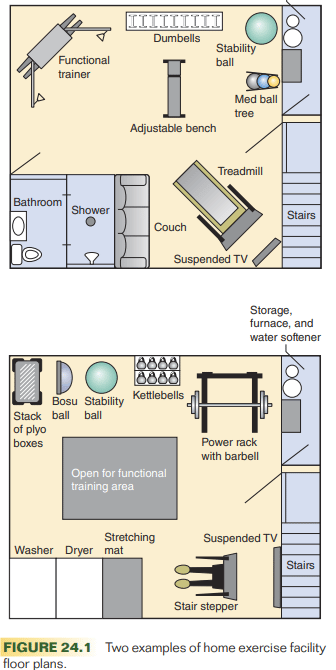
NSCA fails to cover getting a job in the fitness industry and working as a personal trainer.
NSCA also fails to cover preparation for a job in the fitness industry, different career paths to pursue, or the places that personal trainers can work.
NSCA fails to provide marketing strategies necessary for personal trainers to grow their business too, which is a big part of how to make money as a personal trainer.
Overall, NSCA is missing crucial information on careers in the fitness industry and preparing for one. If you compare NSCA to the ISSA personal training certification, it falls short here.
Study For NSCA-CPT
To ensure you will most likely pass the NSCA certified personal trainer exam, it is suggested to do the following:
- Obtain and read through the Essentials of Personal Training: 3rd Edition Textbook
- Read through the Exercise Technique Manual, 3rd. Edition
- Review the Exam Content Description Booklet
- Practice with NSCA’s online practice question bundle
Note that NSCA provides plenty of study materials and exam preparations, as well as third-party resources.
You can read the textbook, review articles, and even take the online practice exam, which consists of 200 CPT review questions.
All test prep material is contained in the NSCA textbook. All additional materials cover the same material just in different formats or with more specific details.
The textbook is fairly dense, with most pages being primarily text in columns.

Some helpful diagrams are included, as well as an NSCA study guide, although these are sparse compared to some of the textbooks for comparable certifications.
The textbook contains useful boxes highlighting key information and concepts, which helps break up the long blocks of text and hammers in the important details.
Nevertheless, if you struggle to learn from reading long blocks of text, you should consider investing in additional study materials.
You will learn about safety, and you must get certified in CPR and learn how to use an AED, in the case of an emergency.
The Exercise Technique Manual is very useful for learning how to coach exercises in detail.
If you’re curious about how long does it take to be a personal trainer through NSCA, we’ve found that the study time for the test is about 2 to 3 months.
Of course, to really up your game, you might want to check out third-party study packages.
These often include more resources at lower price points and even exam pass guarantees that will refund your cost of study materials test if you fail your first attempt.
Note that the NSCA-CPT does allow 90 days to retake the exam without an additional exam fee if you fail.
You can review NSCA-CPT practice questions and take the NSCA practice exam.
By doing so, you are more likely to pass your NSCA PT exam.
But the 200 NSCA-CPT practice exam questions are insufficient for comprehensive studying.
Given the cost of the packages that include questions, this is a bit overpriced for the value.
Kindly note that Trainer Academy has done the groundwork to ensure you have a 99% pass rate, reduce your study time by half, and enjoy a money-back guarantee offer if you make use of their MVP study packages.
The MVP study package is a product of intensive research that has been tested and trusted by thousands of students that have passed through the Academy while preparing for their certification exams.
Click on the link below to partake of the excellent resources available through the package.
You won’t regret using this premium study package.
We also have some free resources for some of the other certifications.
If you pick ACE, there’s an ACE study test and an ACE personal trainer exam cheat sheet.
For those interested in NASM, there are NASM exam questions and a NASM CPT study guide.
Exclusive TA Offers |
||
Most Popular Cert
| Great Option
| Best Cert for you? 
|
Good Option
| Good Option
| Good Option
|
NSCA Certification Cost
The basic NSCA certification exam package costs $435 for non-members and $300 for members. Purchasing additional study materials such as the textbook and coursework will raise the cost to anywhere from $500 to above $800, depending on what you need.
Let’s find out!
In this section, we will solely discuss the NSCA-CPT cost, NCSA membership costs, and study material costs.
According to the NSCA website, both the CPT trainer and the TSAC-F (Tactical Strength and Conditioning Facilitators) cost $300.00 for members and $435.00 for nonmembers.
Both the CSCS and the CSPS (Certified Special Population Specialists) cost $340.00 for members and $475.00 for nonmembers.
The following price breakdown is directly from the NSCA website.
Note that NSCA members who pay the annual membership fee receive discounts. The member fees start at $70.00 per year for college students and $130.00 per year for non-student candidates:
- NSCA-CPT exam cost – $300.00 (member), $435 (non-member price)
- NSCA-CPT essentials – includes textbook, general study guide, and 200 practice questions – $240 (member), $290 (non-member), exam fee not included
- NSCA-CPT Plus – includes essentials package and exercise technique manual – $455 (member), $511 (non-member)
- Digital package – includes NSCA-CPT general study guide and practice questions only – $152 (member), $202 (non-member)
Did you know that you have three membership options?
Well, now you do!
The student membership applies to full-time college students and costs $70.00 per year.
The professional membership includes access to five NSCA journals, free online content, CEUs, and discounts, and costs $130.00 per year.
The CPI membership includes full NSCA benefits and insurance and costs $359.00 per year.
Overall, it’s worth purchasing the membership even if you are just registering for the exam only.
You can also buy the textbook separately for about $70.
Overall, the cost of the NSCA-CPT certification, NSCA membership costs, NSCA-CPT review, NSCA courses, and NSCA books is fair.
Additionally, you may purchase the following materials:
- Dynamic Human Anatomy 2nd Ed. By William Whiting – ~$35.00
- Physiology of Sport and Exercise 7th Ed. By W. Larry Kenney, Jack Wilmore, David Costill – ~$25.00
Use this link to access the NSCA-CPT MVP Study Package!
Exam Difficulty
Overall, the NSCA test pass rate is 60%. This puts it on par with some of the other harder certs to pass if you compare NSCA vs NASM.
However, like with any other top-rated personal training certification, your success depends mostly on your background, current abilities, and how much you are willing to learn!
The exam assesses your overall fitness knowledge, all materials covered in the text, NSCA guidelines, the NSCA certification handbook, NSCA articles, the CPT review questions, and the CPT review test.
However, questions from some sections may appear on the exam more than others, so it is suggested to study all of the material to the best of your ability.
Ready for the certification exam?
Register at any Pearson Vue NSCA test delivery site!
Need help?
Call the NSCA customer number: 800-505-7641 (toll-free).
Pros and Cons
What we like:
- NSCA accreditation
- Huge NSCA network
- NSCA clinics
- NSCA accredited schools
- 90-day retake policy
- NSCA-CPT contains sufficient resources to begin training clients
- Thorough coverage of strength training and special populations
- Thorough coverage of exercise psychology and the mental benefits of exercise
- Great CEU opportunities
- Fair NSCA membership costs
- Membership discounts and benefits
- Access to the NSCA Journal of Strength and Conditioning Research
What we didn’t like:
- Superfluous anatomy sections
- Insufficient coverage of finding work
- No business skills section
- The nutrition section does not discuss fad diets
- Insufficient special population coverage
- Limited psychological coaching skills
- CPT exam prep material from the NSCA is inadequate
METHODOLOGY
We used the following methodology when reviewing the NSCA fitness certification:
- Certified personal trainer’s critical review of content and depth of coverage
- Assessment of whether the content prepares trainers for the job
- Observation of missing or inadequately covered material
- Discussion of exam difficulty
- Review framed relative to other comparable certifications
FAQ
What is the NSCA mission statement?
Its mission is the global enhancement of strength and conditioning, and the empowerment of dedicated sports medicine professionals to provide top-notch scientific knowledge.
What does NSCA stand for?
NSCA stands for the National Strength and Conditioning Association. It is a non-profit organization with over 60,000 members and certified professionals in the fitness and sports medicine industry.
Is NSCA accredited?
Yes. As of 1996, the NSCA became the first certified personal trainer certification program accredited by the National Commission for Certifying Agencies (NCCA). All of the NSCA certification programs exceed the NCCA standards.
How much does it cost to get NSCA certified?
NSCA offers a variety of programs. According to the NSCA website, both the NSCA-CPT and the TSAC-F (Tactical Strength and Conditioning Facilitators) cost $300.00 for members and $435.00 for nonmembers. Both the CSCS and the CSPS (Certified Special Population Specialists) cost $340.00 for members and $475.00 for nonmembers.
How do I study for the NSCA?
NSCA provides plenty of study materials and exam preparations, as well as third-party resources to support your studies. You can read the textbook, review articles, and even take the online practice exam, which consists of 200 CPT review questions.
How much is an NSCA membership?
The student membership applies to full-time college students and costs $70.00 per year. The professional membership includes access to five NSCA journals, free online content, CEUs, and discounts, and costs $130.00 per year. The CPI membership includes full NSCA benefits and insurance and costs $359.00 per year.
Should I get CSCS or CPT?
If you want to help athletes improve their sports performance, and design predominantly sport-specific training programs, then the CSCS is best for you. However, if you want to work amongst the general population, then the CPT is sufficient! NSCA gears the CSCS towards strength and conditioning coaches.
Is NSCA recognized in Canada?
Yes. According to the website, NSCA certifications are recognized not only in the USA but also in Canada.
CONCLUSION
Overall, the NSCA fitness certification provides a good overview of the skills necessary for being a personal trainer.
The topics covered were very similar to most top-rated personal trainer certifications, such as NASM or ISSA, or even ACSM.
So where is the best place to get personal training certification?
And what makes the NSCA-CPT one of the best NCCA personal trainer certifications?
The personal trainer certification NSCA offers provides an excellent launch point for your career in the fitness industry.
This NSCA training certification covers many valuable skills that will definitely prepare you for your first day on the job!
If you focus on resistance training for general fitness populations, the NSCA personal training book covers much of this.
Also, compared to other certifications, the personal training certification NSCA has is fairly affordable.
However, NSCA fails to cover anything about careers as a personal trainer and preparing for one.
There are many personal trainer licenses, but regardless of which you choose, your success depends on your commitment to continuing education and maximizing client value.
Congratulations on taking your first step towards becoming a successful future personal trainer!
Overall, the best personal training certification is the one YOU choose!
References
- Schoenfeld B, Snarr RL, National Strength & Conditioning Association (U.S. NSCA’s Essentials of Personal Training. Human Kinetics; 2021.
- Schoenfeld BJ, Contreras B, Krieger J, et al. Resistance Training Volume Enhances Muscle Hypertrophy. Medicine & Science in Sports & Exercise. 2018;51(1):1. doi:https://doi.org/10.1249/mss.0000000000001764
- Deng N, Kim Geok Soh, Abdullah B, Huang D, Xiao W, Liu H. Effects of plyometric training on technical skill performance among athletes: A systematic review and meta-analysis. PLOS ONE. 2023;18(7):e0288340-e0288340. doi:https://doi.org/10.1371/journal.pone.0288340





